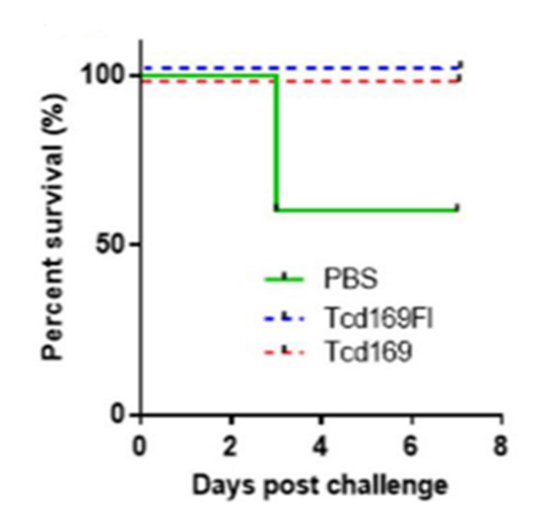Advantages
- Effective against new and recurrent C. difficile infection
- Targets both C. difficile virulent factors TcdA and TcdB
- Prevents C. difficile colonization
- Vaccinations with fusion proteins protect animals against infection with an epidemic C. difficile strain
Summary
Globally, CDI remains an urgent public health problem. In the United States, C. difficile is the most common healthcare-associated pathogen, linked with high rates of recurrent infection and mortality. The root cause of recurrent CDI is the ability of C. difficile to survive as stable spore forms, which are resistant to antibiotics and harsh conditions. An ideal and effective C. difficile vaccine should target both C. difficile toxins TcdA and TcdB and its colonization.
Our researchers have developed three immunogenic protein vaccine candidates for the treatment of C. difficile. Immunization of animals with the first fusion protein Tcd169 induced neutralizing antibodies against both toxins and provided full protection against infection with a hyper-virulent C. difficile strain. It has been reported that Salmonella typhimurium flagellin (sFliC) protects mice from death during CDI by delaying C. difficile growth in the gut. Therefore, we incorporated sFliC into the proteins, generating the vaccine candidates Tcd169FI and Tcd138Fl. In addition to conferring protective effects against CDI in vivo, these proteins reduced C. difficile colonization to prevent recurrent infections. In animal studies, the three vaccine candidates effectively treat CDI and confer protection from C. difficile relapse.

Percent Survivability of Mice Immunized with the Vaccine Candidates (Tcd) Versus PBS
Desired Partnership